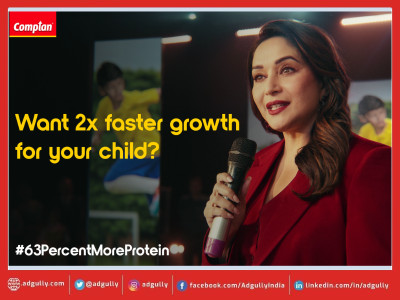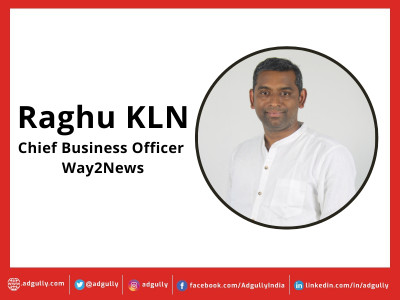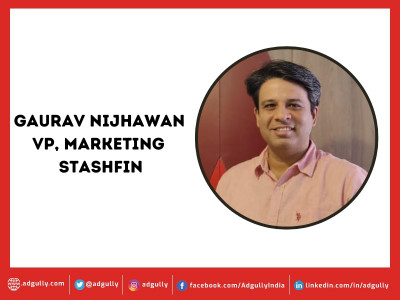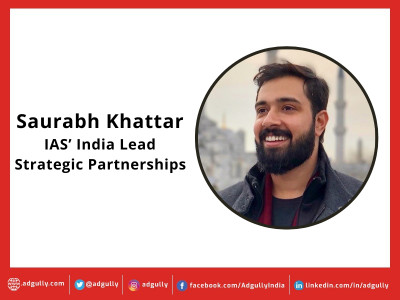Role of AI in marketing: Tarun Arora
Authored by Tarun Arora, CMO, Inshorts.
Tarun Arora is currently the Chief Marketing Officer at Inshorts, erstwhile News In Shorts. He joined the company at an early age of 24 under the inspiring mentorship of Azhar Iqbal, CEO & Co-Founder of Inshorts. In his existing capacity as CMO, he adorns multiple hats, therefore leading the marketing vertical for the company and has crucial involvement in sales and product development. Prior to Inshorts, Tarun worked with Clear2Play, an innovative payments technology company, as an engineer. Clear2Play is now known as FIS Global, world's largest global provider dedicated to financial technology solutions.
When the seasons of Black Mirror premiered in the UK around seven years ago, it landed with high appreciation and reflected the affinity of viewers towards a cult and futuristic show. Taking it to a mainstream audience by producing the latest seasons of the show, Netflix has pushed the envelope of imagination and started a full-fledged debate about a technological dystopia that we are racing towards. On the flip side, certain critics however have contradicted the theory and said that despite the bleak outlook, Black Mirror episodes are brimming with new ideas and great tech, especially the applications of artificial intelligence. It is definitely a great context setter to my article here today, wherein the objective is to understand how this cutting-edge technology is being applied to engage audience better at various levels of marketing and in the process make our lives easier as marketeers.
AI level solutions in marketing have been around for pretty long, and technology has made rapid progress, disrupting industries in a way that the tech-less era is long forgotten. With AI and technology taking over our day to day lives, we can see the integration of the same in obvious ones such as built-in smart assistants like Siri, Google Assistant to Google Home, certain AI based chatbots, Alexa and also not so obvious ones such as the portrait mode feature while shooting pictures, smart email categorization.
Though there are many aspects of AI implementation in marketing, the ability to get a deeper personalization and customization in campaigns is of the foremost interest to any marketeer. Targeting users has become more precise and accurate with features like Facebook’s “lookalike Audience”, which helps in creating a set of users likely interested in the business based on existing customers.
Recent product developments like Google Universal campaigns have further streamlined the process of targeting and bidding for new users where marketeers can do action-based bidding thereby telling the system to target and bid for users who are likely to perform a desirable action. For example an ecommerce platform can bid for users who are likely purchase in the first 7 days or a news app can target users who are likely to read more than 20 articles a day.
Programmatic advertising is another such implication of AI which has dramatically improved the tedious process of media buying. Using AI and data analytics to buy digital ads, media buyers can now go through an auction like approach instead of negotiation with brokers and third parties for displaying their ads on various platforms. With the combined capabilities of the real time bidding system and real time optimization, brands can automate the entire process from selection of consumers, targeting of ads, placing bids and dynamically choosing ad inventories
to tracking performance. Now with the twist of AI, the whole chain has become more result-oriented, efficient and seamless.
Furthermore, with AI, filtering of audience is also becoming more and more automated therefore focused targeting of ads is not a manual job anymore. With time the edges of the technology will only get razor-sharp and deep therefore helping marketers spend more time with their creative hats.
Another pragmatic and direct impact of AI is visible in the news marketing space, where the battle today is differentiating between factual, advertising and propaganda news for any average user. Globally, WhatsApp, Facebook and Twitter are taking great measures to combat the spread of fake news on their platforms, to the extent of forming global committees. Brand marketing is equally affected with the menace of fake news, as ads placed in fake news content raises a good amount of concern on brand safety guidelines. The solution to all this lies in the right application of AI to the entire arena of news creation and marketing.
With AI dominating headlines and all business decisions in the current scheme of things, another school of thought is of the opinion that in the process of quenching the thirst of increased efficiency, AI may marginalise the roles of humans in all industries. They are also the same people who see validity in the claims made by Black Mirror about a technological dystopia. However, the other side of the argument is pretty strong where we think that AI will become the new normal in workplaces and various ecosystems. It is futuristic innovation that will benefit humanity, and will eventually learn to coexist with mankind.

















Share
Facebook
YouTube
Tweet
Twitter
LinkedIn